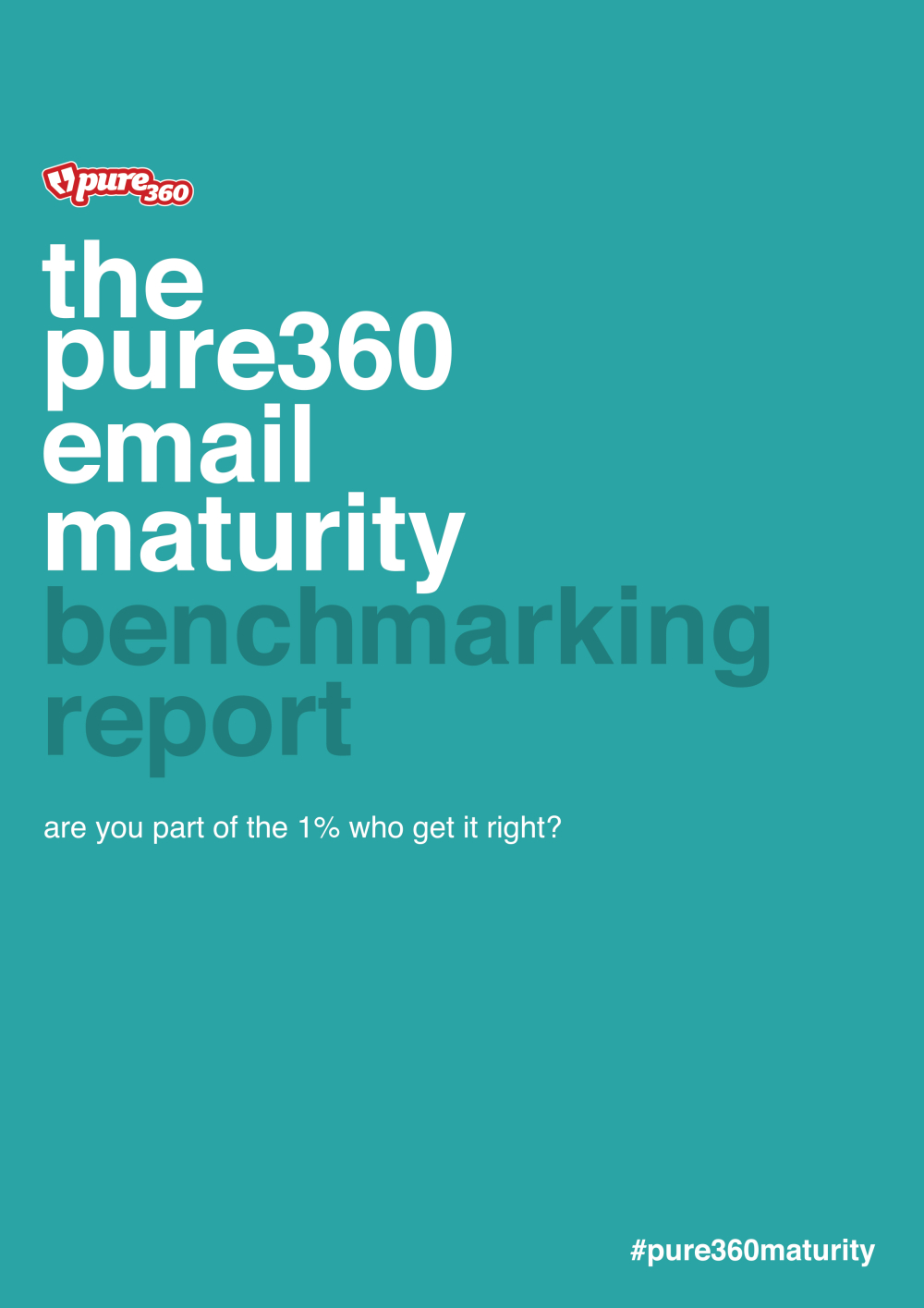Pure360 Email Maturity Benchmarking Report: Revealing the secrets of email marketingâs top one percent
05 Nov 2015

We are very excited to announce the release of The Pure360 Email Maturity Benchmarking Report! This report builds upon our work in defining a Maturity Model for email marketing sophistication; finding that most businesses are failing to establish clear, actionable facts about customer personalities and preferences.
By interviewing 205 large and medium-sized companies in the UK, we have found that 90% of all email marketing fits into the first four stages of our six stage Maturity Model. The report finds several compelling reasons for companies failing to reach later, more effective stages of the Model.
Across all business sizes, reduced resources and increased responsibilities are preventing marketers from taking their email offering to the next level. Interestingly, marketers rate their email marketing approach low in terms of sophistication, but high in terms of effectiveness. They find themselves stuck in the middle of our Maturity Model: 39% are “segmenters” and 38% are “recommenders”.
Discussing the email habits of these groups, Nicola Webster, our very own Product Marketing Manager notes that “Many marketers simply do not have the time, resource or skill to analyse complex data sets, meaning that much of it goes unused, or is only utilised at a fairly superficial level”.
Nicola suggests that the jump beyond “recommender” to “predictor” status is a particularly difficult one, “[requiring] best in class integration, data and technology, capital investment and specialist data analysts”. Only 1% of companies surveyed can be considered “interactors” – the most mature of the stages in the Model.
Our report finds significant variation between industries, as a result of different information gathering habits and systemic differences. Professional services companies gather their information offline (and therefore struggle to maintain CRM systems), whereas manufacturing firms are stuck with old systems and place little emphasis on digital channels, for instance. The retail and financial services industries are generally more mature, arguably because retailers have more digital touch points and finance is built around lead generation and data analysis.
To discover the full results and learn more about moving up the email maturity model, download the full report here.
Follow the conversation at #pure360maturity

Please login to comment.
Comments